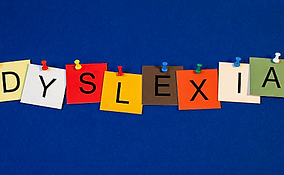SEND
.
At Discover, we are trained and experienced to support a wide range of needs including ADHD,Autism and Dyslexia. With our resources and strategies we can help your child learn and thrive at their own pace. At Discover, we provide fun and adapted classes along with a sensory room that gives your child a lovely calm environment to learn beyond their limits.
Find out more below about the special needs we can support:
(Special educational needs and disabilities)
The four broad areas of need
A person with SEND may fall into at least one of these four groups, according to the Department for Education (Ref: DFE-00205-2013)
Cognition and learning
Specific learning difficulties, such as:
Dyslexia - Reading and spelling
Dyscalculia - Mathematics
May requires different types of support such as one-to-one support or group support.

Sensory and physical needs
Physical and sensory difficulties, such as:
- Visual Impairments (VI)
-Hearing Impairments (HI)
- Multi -sensory Impairment (MSI)
-Physical disability


Communication & interaction
problems interacting with, reacting to, and understanding spoken language, such as :
- Speech problems
- Autism
Social, emotional and mental health
This can include:
- Depression
- Attention deficit hyperactivity disorder (ADHD)
- Autism , causes problems with managning and expressing emotions. Can also lead to behaviour difficuties.

Specific Needs
At Discover, we recognize that within the four broad areas of need, conditions such as autism, dyslexia, and ADHD represent more specific needs that require targeted support, and as teachers, we have extensive experience working with children who have these needs in our classrooms.

ASD (Autism Spectrum Disorder)
We can support students with Autism by creating a structured, predictable environment and using clear, direct communication. Visual supports and tailored learning strategies can also help students stay engaged and reduce anxiety.
We can support students with ADHD by providing a structured environment with clear routines, breaking tasks into manageable steps, offering frequent breaks to help maintain focus.
Visual aids, hands-on activities, and positive reinforcement.
We can support students with dyslexia by using multi-sensory teaching methods and providing extra time for reading and writing tasks. Breaking tasks into smaller steps and using visual aids can also help improve understanding.
Sensory Room
.
At Discover, we are committed to providing a holistic approach to supporting children with Special Educational Needs and Disabilities (SEND), and one of the key features of our support is our Sensory Room.
This space is specifically designed to help children who may experience sensory processing challenges, providing them with a calming, controlled environment where they can regulate their sensory input.
The Benefits
- Develops confidence, independence and social skills.
- Provides escape from the stress of the classroom.
- Can be easily incorporated into the learning curriculum.
- Creates a positive learning experience.
- Improves sensory processing.
Study Supporting the Benefits of Sensory Rooms
Research highlights the positive impact of sensory rooms on children with Special Educational Needs. It can help reduce anxiety and improve focus and emotional regulation in children with autism.
Take a look at some research



